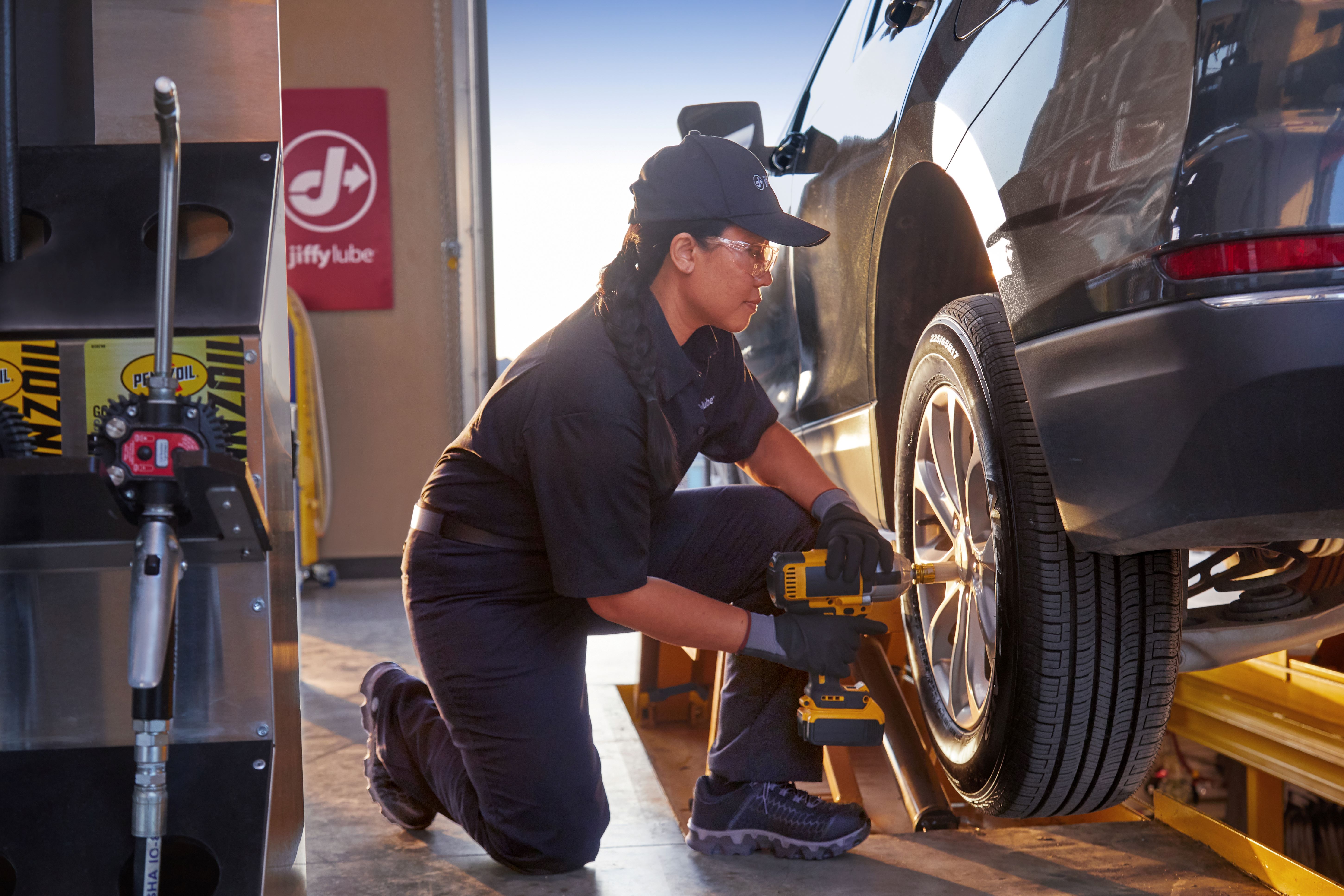Premium Tires Morris IL: Top Quality Products for All Makes and Designs
Premium Tires Morris IL: Top Quality Products for All Makes and Designs
Blog Article
Tire Service: The Effect of Climate Condition
When it concerns guaranteeing optimum performance and safety and security when traveling, understanding the influence of climate problems on tire service is essential. From scorching warm to icy roadways, each weather component can substantially affect tire capability and general driving experience. By diving right into the impacts of differing weather condition conditions on tires, drivers can get important insights that might boost their lorry's efficiency and long life. In this conversation, we will certainly explore the intricate relationship between weather and tire solution, shedding light on the relevance of weather-specific tire upkeep practices and factors to consider.
Warmth and Tire Efficiency
When revealed to high temperature levels, tires experience changes in performance that can significantly influence vehicle security and handling. The heat produced from long term driving or warm climate conditions causes the tire rubber to soften, leading to minimized walk life and boosted wear.
Additionally, high temperature levels can speed up the process of tire aging, causing the rubber to degrade extra rapidly. This can lead to cracks, protrudes, and various other types of damage that endanger the architectural honesty of the tire. To alleviate the impacts of warmth on tire efficiency, chauffeurs need to routinely check their tire stress, revolve tires to make sure also use, and inspect for any kind of indicators of damage. Additionally, utilizing tires especially made to withstand high temperatures can aid keep optimal efficiency and safety when driving.
Winter Effects
Cold weather conditions can have a significant effect on tire efficiency and safety. In chilly climate, tires might likewise shed air pressure a lot more rapidly, which can influence handling and fuel effectiveness.
To minimize the results of winter on tires, it is critical to frequently inspect tire pressure and inflate them to the supplier's advised levels. Making use of wintertime or all-season tires made for winter problems can additionally enhance traction and grasp on icy or snowy roads - morris tire and alignment. Appropriate tire maintenance, consisting of normal assessments for wear and damage, becomes a lot more important throughout colder months to make certain optimal performance and security
Rainy Conditions Impact
Tires with worn-out treads are a lot more vulnerable to hydroplaning, where a layer of water constructs up in between the tire and the road surface, leading to loss of traction. To fight this, chauffeurs must consistently evaluate their tires for ample step depth and consider spending in tires specifically made for wet problems.

Snow and Tire Safety And Security
Snow-covered roadways position unique obstacles for vehicle drivers, stressing the importance of correct tire choice and upkeep. When driving in snowy conditions, having the appropriate tires can make a substantial distinction in security and performance. Winter best site season tires are designed with unique rubber substances and step patterns to provide much better grip on snow and ice compared to all-season tires. The much deeper footsteps and sipes of winter tires help grip the road better, reducing the risk of gliding and sliding.
In enhancement to utilizing wintertime tires, it is vital to ensure they are appropriately pumped up. Cold climate can trigger tire stress to drop, influencing traction and handling (tire shop morris). Regularly examining and keeping the right tire stress is vital for optimal performance in snowy problems

Weather-Related Tire Upkeep
Weather-related tire maintenance includes an array of methods intended at guaranteeing optimal tire function and long life in various climate circumstances. One key aspect of weather-related tire upkeep is tire stress guideline. Examining tire tread frequently and replacing tires when step wear reaches a certain depth is vital for keeping grip and stability in negative weather.
Final Thought
In conclusion, weather conditions have a significant effect on tire efficiency and safety and security. From warmth impacting tire pressure and use to cold climate lowering grip, it is important to think about the climate when maintaining and using tires. Rainy conditions can reduce hold and result in hydroplaning, while snow can raise the danger of crashes if tires are not appropriately outfitted. Weather-related tire maintenance is vital in making certain optimal performance and safety when traveling.
In this discussion, we will discover the elaborate partnership in between climate see this site conditions and tire solution, dropping light on the significance of weather-specific tire maintenance methods and factors to consider.

Report this page